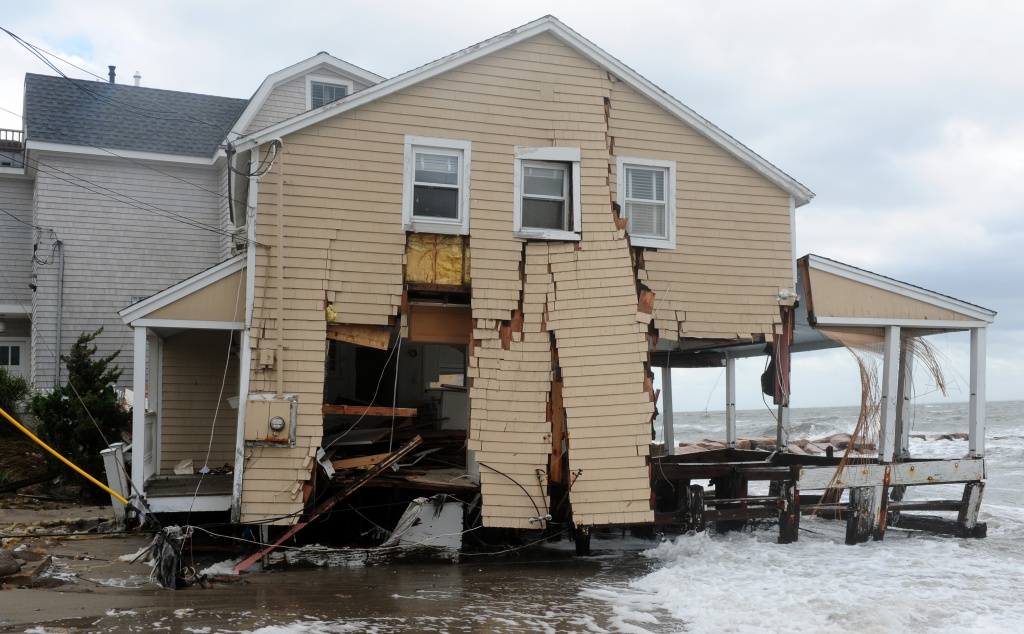
This house on Reef Road was jacked up in April in the wake of flooding caused by Superstorm Sandy. The state has rejected financial help for individual homeowners, telling them to sink or swim on their own. Photo: Brian A. Pounds
U.S. Rep. Jim Himes, D-Conn., is urging the state’s public safety brass to reconsider $18 million in storm aid requests that were denied from shoreline property owners seeking to move their homes to higher ground.
The state Department of Emergency Services and Public Protection last week rejected all 94 applications to elevate homes in the coastal flood plain, prioritizing projects to harden municipal infrastructure such as seawalls, levees, bridges and sewer treatment plants instead.
The decision sparked a outcry from elected officials in the coastal communities that Himes represents and were ravaged by Super Storm Sandy and Tropical Storm Irene.
“Their point of view is that citizens should be served first before municipal infrastructure,” Himes told Hearst Connecticut Newspapers on Wednesday. “I think it’s important for the committee to take that into account.”
Himes’ plea for the state to reopen its deliberations comes just days after Gov. Dannel P. Malloy ordered the committee in charge of the disbursements to reconvene.
The third-term congressman, who lives on a tributary of Long Island Sound himself, said many coastal property owners were under the impression that they would qualify for the Hazard Mitigation Grant Program and spent significant sums of money preparing their applications.
Generally speaking, Himes said he understands the misgivings of some taxpayers who object to paying to elevate homes, but he said that the onslaught of storms has created a hardship for many of his constituents who live on the shoreline.
“In the long run, taxpayers should not be subsidizing coastal living,” Himes said. “But the weather is changing dramatically and quickly, so people are experiencing things that they didn’t necessarily buy into when they purchased their homes. In the meantime, we’ve got people who are suffering quite intensely.”